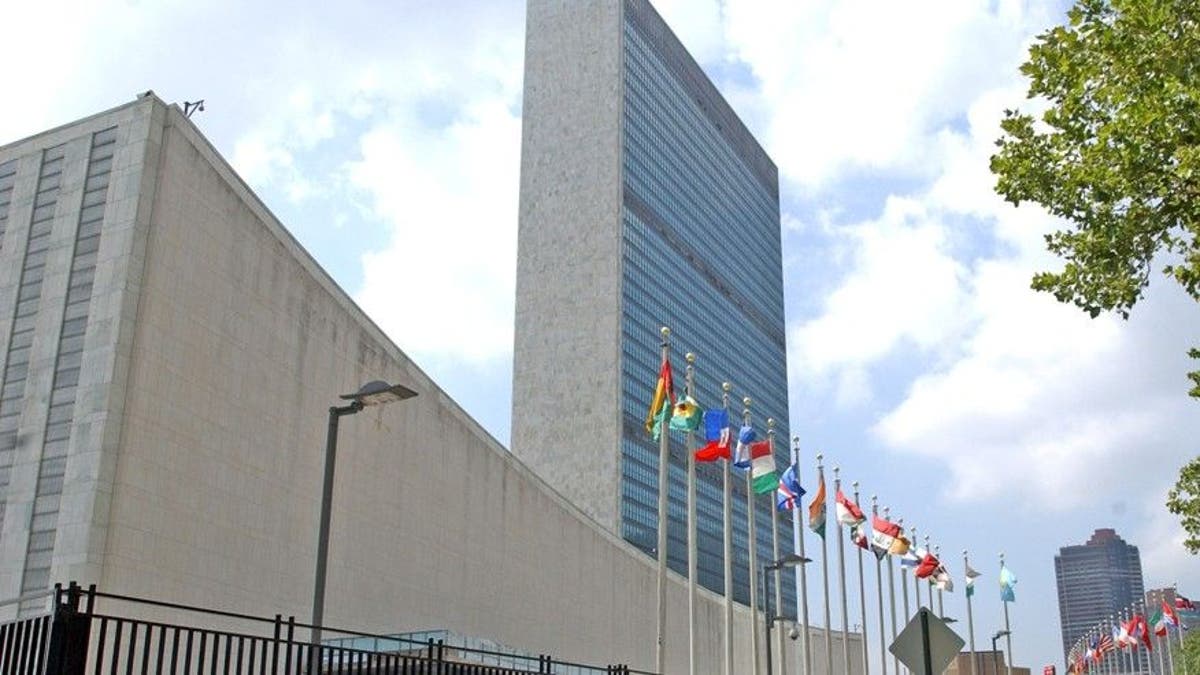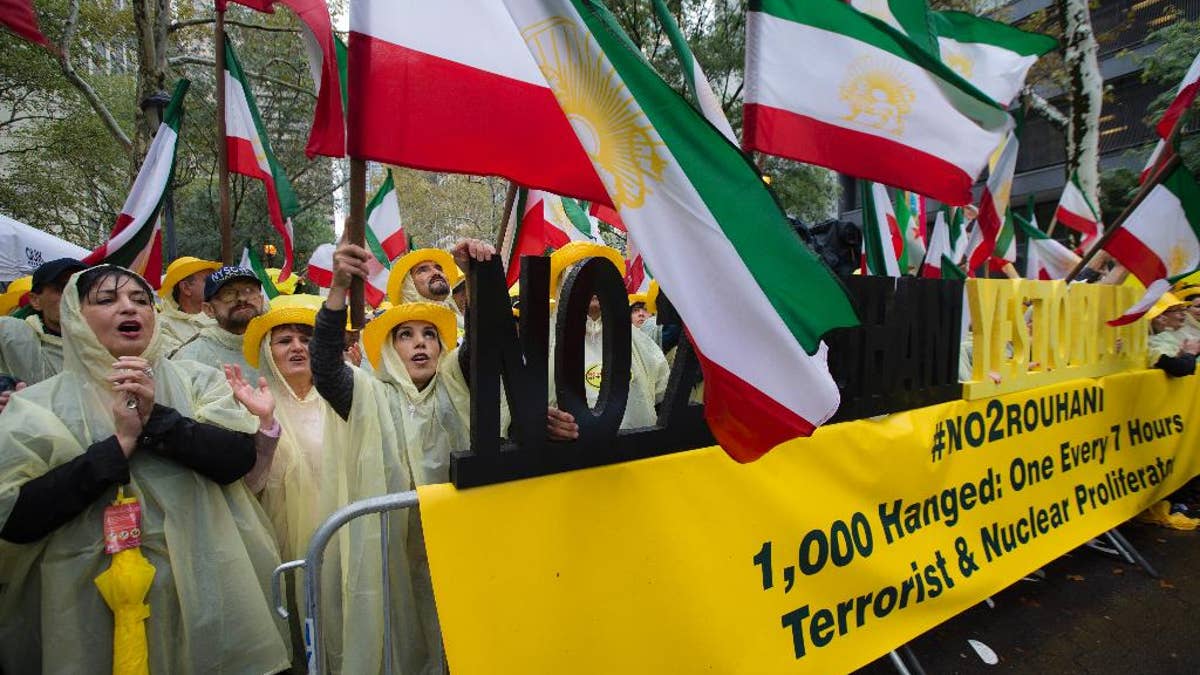
The United Nations headquarters in New York.
The annual September gathering at the U.N. General Assembly (UNGA) headquarters in New York attracts thousands of world leaders, their aides, diplomats – and a darker, behind-the-scenes element that’s rarely mentioned in all the international media coverage.
Behind the buzz of official diplomatic activity, experts agree the meetings are a prime time opportunity for any foreign government - particulary foes of the U.S - to dispatch networks of spies to creep through the cracks of the endless parties, protests, backroom dinners and debates that dominate the sessions.
“Only 50 percent of the UNGA is about diplomacy, the other 50 percent is pure intelligence gathering. Within the U.N. building’s walls it is very diplomatic, but outside it is pure chaos - a total spy game,” said Larry Johnson, a 24-year veteran of the U.S. Secret Service and currently CEO of CyberSponse.
“Every country is engaged in spying at this event, and they have their intelligence/surveillance teams come in at least a week in advance, often from different ports of entry, so they are harder to trace,” said Johnson. “They will be doing every type of surveillance you can imagine, from intercepting cell phone traffic and WiFi to bugging hotel rooms, visual surveillance (photography) and in-person reconnaissance.
Johnson said the “in-person reconnaissance” is especially active at the UNGA. “They take advantage of the dining, networking and informal meetings … People tend to be less guarded in those moments, especially if they’ve been drinking, so it can be a gold mine for intel collection.
Johnson and other experts agree Russia, Iran, Israel – and the U.S. – are among the most active spying operations, and as much as half the visiting delegations from some countries are intelligence operatives.
“With the city becoming the world’s melting pot for the month of September, those interested in espionage can essentially have a one-stop shop for assisting a country or being a double agent for another, with plenty of cover story options given the numerous events,” Erik Rasmussen, Principal Head of Cybersecurity and Risk Management Solutions for private security firm Grobstein Teeple, told Fox News.

Rallies like this one, by an Iranian opposition group outside UN headquarters, are a magnet for spies. (The Associated Press)
A critical intel-gathering function at the UNGA is to try and pre-empt what is being said and done by various countries’ representatives, according to Dan Hoffman, a retired CIA senior clandestine officer, and current Fox News contributor.
“Everyone wants to know the talking points and how to engage,” said Hoffman, adding that New York is already a hotbed of espionage, and that those tasked with the role are “working overtime” during the meetings.
Experts also say the U.N. meetings afford spies the opportunity to take advantage of different ways to gather intelligence, while they operate under diplomatic cover.
“When diplomats descend on UNGA with their entourage, it inherently contains a security and intelligence component,” observed Tony Schiena, founder of security firm MOSAIC. “It is a great time for spies to operate so advantage can be taken in older traditional forms of espionage, as well as the creation of highly sophisticated platforms of communication for continuous communication and the delivery of information.”
Schiena said U.S. authorities undeniably have their work cut out keeping on top of the complex web of snooping and snitching, and noted he has personally been involved in cases “where they have intercepted foreign spies on attempted approaches.”
It’s very rare for any of the spying to make the headlines. But in one such case, Majid Ghorbani, an Iranian citizen and California permanent resident, was arrested last month after allegedly taking photos at an Iranian opposition rally during the 2017 U.N. meetings, and passing them on to Iranian intelligence. The indictment against Ghorbani says he was involved in an operation to kidnap and kill Ali Safavi, a leading Iranian opposition figure.
“I remember him. He came to the rally and upon seeing me, asked why I don’t go to California to visit anymore,” Safavi, a senior official with the National Council of Resistance to Iran (NCRI), a high-profile group that advocates regime change in Iran, told Fox News.
One former CIA officer told Fox News the various U.S. and law enforcement agencies work above and beyond to protect national interests during the U.N. meetings, highlighting that while intelligence gathering is no doubt part of the operation, every single person entering with a delegation is stringently vetted. And in some cases, “diplomats” of concern are limited to a travel radius in and around their nation’s diplomatic facilities.
But the scale of the UNGA remains a challenge. Even though treaties and regulations have long been in place to try and ban espionage within the U.N., experts say the September meetings present an especially gray area because of diplomatic immunity, a legal protection that ensures diplomats are not susceptible to prosecution under a host country’s laws.
That allows various characters working as intelligence agents to be slipped into bloated delegations with designated diplomatic passports. And some of those so-called diplomats don’t even bother concealing their intentions.
Speaking to the press ahead of the UNGA on last week, Ibrahim Kalin, a senior advisor to Turkish President Recep Tayyip Erodgan, reportedly announced plans to continue identifying supporters of controversial exiled cleric Fethullah Gulen, which the government blames for orchestrating a failed 2016 coup effort and refers to as a terror group FETO.
“Our relevant units and institutions will continue their operations in the countries the FETO operates in whether the U.S or some other country,” noting that Erdogan “has given very clear instructions on this issue.”
What such alleged “operations” could amount to, especially during the UNGA, remains uncertain. Kalin did not respond to a request to further comment on or clarify the remarks.
“Every government has policy goals and security and economic imperatives they seek to address,” observed Andrew Lewis, former Special Assistant to the Deputy Assistant of the Secretary of Defense and founder of the Ulysses Group, which provides financial targeting and intelligence support to the government.
“This flows down to their intel agencies in the form of collection requirements … recruiting people to spy for them, technical surveillance, and various types of signals intercepts, to setting up compromising situations and blackmail.”
Some countries, particularly those adverse to the United States, are known to have plenty of tricks in the quest to evade surveillance.
In 2009, Rasmussen said officials were informed that then-adversary and Libyan dictator Muammar Qaddafi had used to a false name to organize “staying in a Beduoin tent” in Bedford, north of New York City, rather than a hotel or mission. But it ended up a “total sham,” as the flimsy cover for intelligence operations was exposed.
Of course, the UNGA also allows the U.S. to work its own intelligence purposes as well. In 2013, former National Security Agency (NSA) contractor Edward Snowden released documents purportedly showing that the agency had tapped U.N. headquarters, and was able to spy on the institution’s internal communications system.
The U.S. also conducted surveillance operations against members of the U.N. Security Council in its efforts to win support for the war in Iraq, according to reports, looking to collect information on who would and would not support various UN resolutions.
And even before Iran’s then-President Mahmoud Ahmadinejad in 2010 had finished his much-publicized tirade at the UNGA podium - accusing the U.S. of being behind the 9/11 attacks - American diplomats were already headed for the door with carefully crafted statements of condemnation ready for release. That led speculation about just how much was known in advance about the speech.
Other experts seemed skeptical that spying at the UNGA amounts to much more than hot air - with some rare exceptions.
“There is quite a bit of espionage going on, but it is limited because the UNGA is a bubble,” said Michael Biggs, President and CEO of Centurions Defense, a global tier-one tactical training and security firm. “However, occasionally a spy can get lucky and find something or take advantage of a situation. But a spy must be a gray man, invisible, unnoticeable.”




















